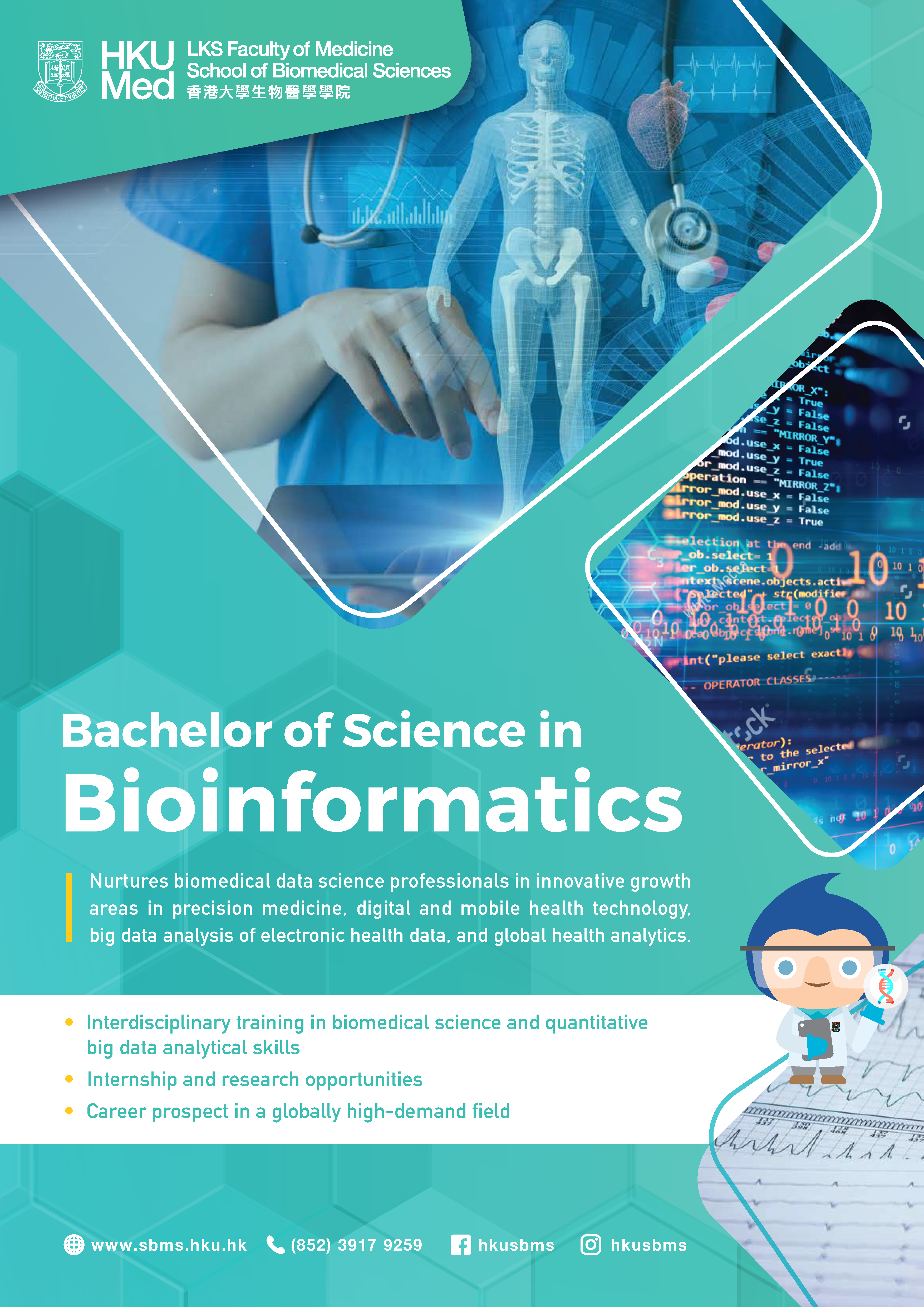Knowledge Exchange
Oct 15, 2021
BSc(Bioinformatics): New programme to be offered in 2022-23 academic year
Data science is now central to modern biomedical research and healthcare innovation. Our BSc in Bioinformatics programme provides essential training for future leaders in this cutting-edge discipline. Bioinformatics covers a wide range of high impact biomedical big data applications, including genomics, precision medicine, single-cell analysis, systems biology, digital & mobile health technology, mobile health, artificial intelligence (AI) analysis of medical imaging data, electronic health record analysis, and global health & epidemiology.
The design of this BSc (Bioinformatics) curriculum recognises the wide spectrum of personal interest and diversity in career aspiration of a modern bioinformatics practitioner, ranging from biomedical researchers who are skilled at performing analysis with bioinformatics tools (bioinformatics users), to computational biologists who can perform large-scale data analyses to solve biomedical questions (bioinformatics scientists), to software developers who build innovative new computational or statistical tools for healthcare applications (bioinformatics engineers). Students are required to complete 240 credits of courses in the four-year curriculum, of which 96 credits are major courses (Bioinformatics), 36 credits are Common Core courses, and 18 credits are Language Enhancement courses. The remaining 90 credits are for minor and electives.
More details: Programme Pamphlet


